On the 25th anniversary of the Legal Information Institute, I’m wondering how I talk about its significance without sounding like an old fogey. You know what I mean – those statements from your elders that always start, “Why, when I was younger …”
But to understand how far ahead of its time the LII was, you need to understand something about the world of legal information as it existed in 1992, the year it launched.
First of all, the Internet was still in its infancy, relative to what we know it as today. It was still a limited, text-only medium used primarily by academics and scientists, navigable only through archaic protocols with names such as Gopher, Archie, Jughead and Veronica (I’m not making those up), using esoteric and confusing commands.
The first functioning hyperlinked version of the Internet – what we came to call the World Wide Web – had been developed just the year before, by Tim Berners-Lee at CERN in Switzerland. The web only began to gain momentum in 1993 – a year after the LII’s founding – with the development of the first two browsers that allowed graphical elements on web pages. One, Mosaic, later became Netscape Navigator, and the other, Cello, was the first browser designed to work with Microsoft Windows 3.1, which first went on the market the year before.
Remarkably, the Cello browser was created at the LII by cofounder Thomas R. Bruce so that the LII could begin to implement its vision of publishing hyperlinked legal materials on the Internet. How’s that for ahead of its time? No one had yet created a graphical browser that worked with Windows, so the LII built the first one.
As for the availability of legal information on the Internet in 1992 – fuggedaboutit, there wasn’t any. Neither Westlaw nor Lexis-Nexis were accessible through the Internet; access required either a proprietary dial-up terminal connecting over painfully slow phone lines or a visit to the library for hard-copy volumes. There was virtually no online access to court opinions or statutes or legal materials of any kind. Few legal professionals had even heard of the Internet.
In fact, the LII was the first legal site on the Internet. Think about that – about the proliferation and ubiquity of law-related websites today – and consider how prescient and trailblazing were Bruce and cofounder Peter W. Martin when they started the LII that quarter-century ago.
In short order, they developed and set in motion a model of free legal publishing that carried us to where we are today. They were the first to begin regularly publishing Supreme Court opinions on the Internet – at least a decade before the Supreme Court even had a website of its own. They published the first online edition of the U.S. Code in 1994. They created the first “crowdsourced” legal encyclopedia, Wex.
Blazing the Internet Trail
I came to the Internet party a bit later. In 1995, I began syndicating a column for lawyers about the Internet. In my third column, in May 1995, I surveyed the availability of court decisions on the Internet. Apart from the Supreme Court decisions then available through the LII’s website and some academic FTP sites, the only other decisions that could be found for free on the Web were those of two federal circuits, the 3rd and 11th (and only a year’s worth); the New York Court of Appeals; and the Alaska Supreme Court and Court of Appeals. North Carolina opinions were online via an older Gopher site.
In short, even three years after the LII’s launch, the Internet was still far from a viable medium for legal research. Here is how I described the situation in a December 1995 column:
When it comes to legal research, the Internet remains a promise waiting to be fulfilled. The promise is of virtually no-cost, electronic access to vast libraries of information, of an easily affordable alternative to Westlaw and Lexis that will put solo and small-firm lawyers on the same footing as their large-firm brothers and sisters.
The reality is that the Information Superhighway is littered with speed bumps. Courts, legislatures and government agencies have been slow to put their resources online. Those that do offer only recent information, with little in the way of archives. Secondary sources, such as treatises, remain even rarer. On top of it all, information on the Internet can be hard to find, requiring resort to a variety of indexes and search engines.
Yes, youngsters, we used to call it the Information Superhighway. Blame Al Gore.
The point is, we’ve come a long way baby. And there is little question in my mind that we would not be where we are today had Tom and Peter not had the crazy idea to launch the LII. From the start, their notion was to make the law freely and easily available to everyone. As the website says to this day, the LII “believes everyone should be able to read and understand the laws that govern them, without cost.”
In 1992, that was a revolutionary concept. Heck, in 2017, it is a revolutionary concept.
They didn’t have to go that route. They could have pursued a commercial enterprise in the hope of cashing in on the potential they saw in this emerging medium. But they didn’t. They chose the route they now call “law-not-com.”
So successful was the LII’s model that it inspired a world of copycats promoting free access to legal information all across the globe. These include the Asian Legal Information Institute, the Australasian Legal Information Institute, the British and Irish Legal Information Institute, the Canadian Legal Information Institute, the Hong Kong Legal Information Institute, the Southern African Legal Information Institute, the Uganda Legal Information Institute, and even the World Legal Information Institute, to name just some.
Continuing to Set the Standard
In my old-fogey nostalgia, I’ve been speaking about the LII in the past tense. Yet what is perhaps most remarkable about the LII is that it continues to set the standard for excellence and innovation in legal publishing. In the technology world, trailblazers often get left in the dust of the stampede that follows in their paths. But the LII continues to expand and innovate, both in the collections it houses and in its reach to global audiences.
Last year, for example, the LII became the new home for Oyez, the definitive collection of audio recordings of Supreme Court oral arguments. And, as more and more citizens take an interest in understanding their legal rights, traffic to the LII has been booming.
Twenty-five years after the LII ventured out into a largely barren Internet, striving to make legal information more widely available to the public, it is remarkable how far we’ve come. Even so, it is also disappointing how far we still have to go. Unfortunately, the legal-information landscape remains dotted with locked bunkers that keep many primary legal materials outside the public domain.
I don’t begrudge commercial publishing and research companies their right to charge for content they’ve created and innovations they’ve engineered. But I staunchly believe that there needs to be a baseline of free access for everyone to legal and government information. That was the goal of the LII when it launched in 1992 and that is the goal it has continued to work towards ever since. Were it not for the work of the LII, we would be nowhere as near to achieving that goal as we are today.
Robert J. Ambrogi is a lawyer and journalist who has been writing and speaking about legal technology and the Internet for over two decades. He writes the award-winning blog LawSites and is a technology columnist for Above the Law, ABA Journal and Law Practice magazine. Bob is a fellow of the College of Law Practice Management and was named in 2011 to the inaugural Fastcase 50, honoring “the law’s smartest, most courageous innovators, techies, visionaries and leaders.”




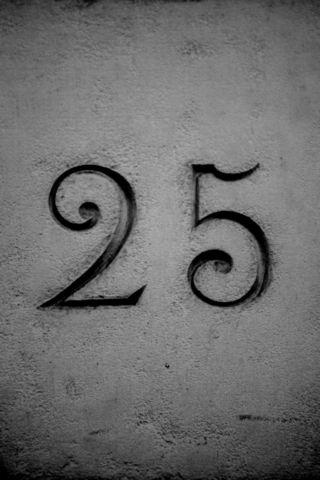
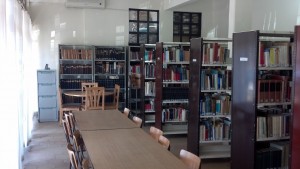
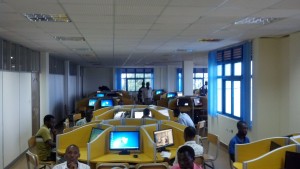
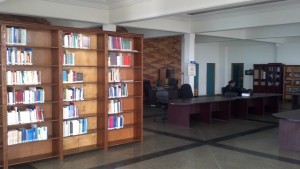
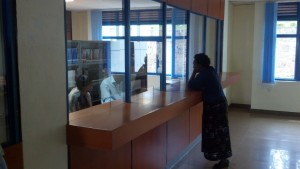
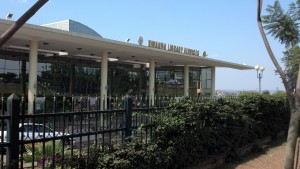
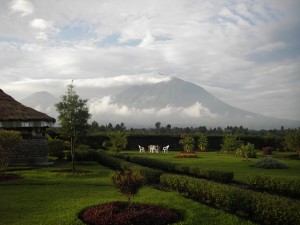
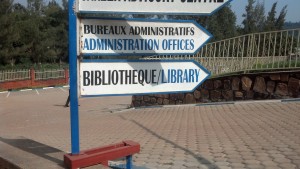





 Stephanie Davidson is Head of Public Services at the University of Illinois in Champaign. Her research addresses public services in the academic law library, and understanding scholarly research methods and behavior.
Stephanie Davidson is Head of Public Services at the University of Illinois in Champaign. Her research addresses public services in the academic law library, and understanding scholarly research methods and behavior.
